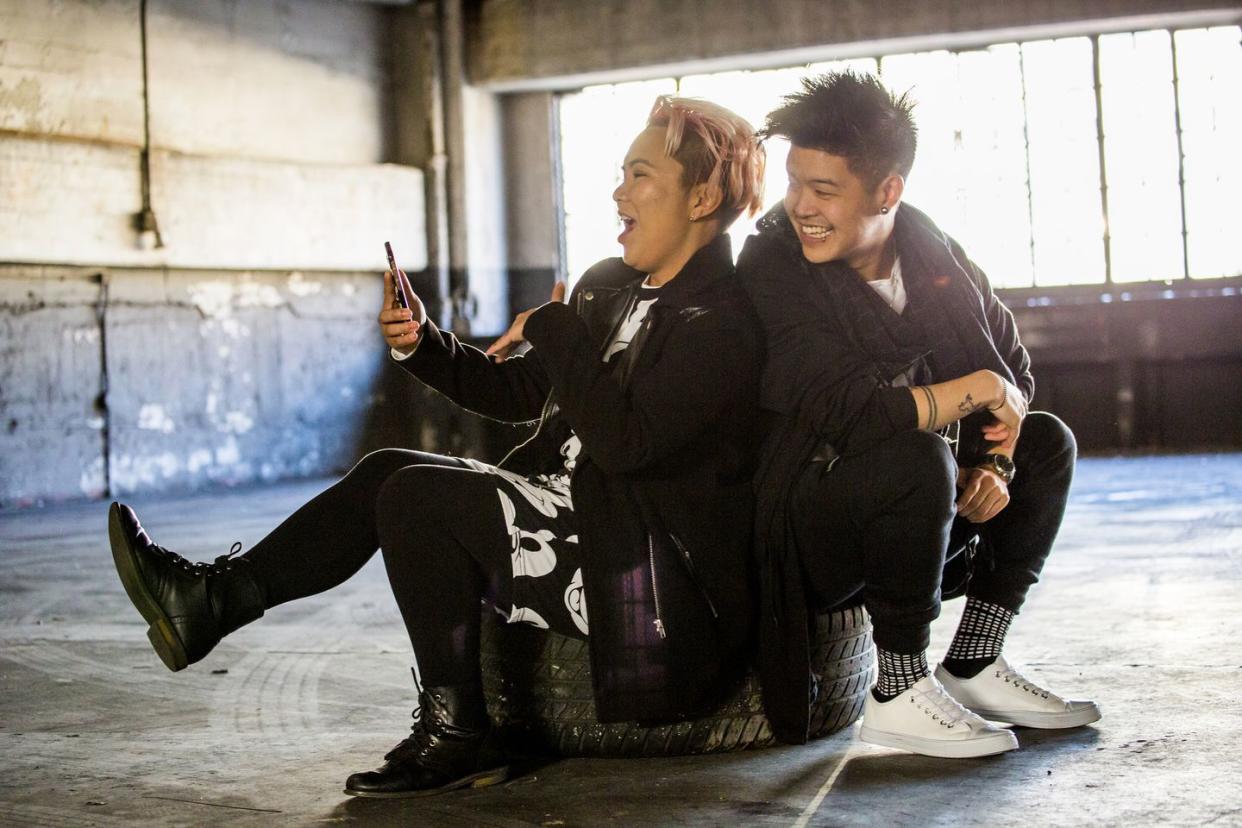Here's What It Means to Identify as 'Autigender'

LEANNE YAU, A 24-YEAR-OLD polyamorous content creator in the UK, didn’t have strong feelings about her gender identity growing up. She didn’t mind that people considered her a woman, but she didn’t relate to certain conventions like wearing makeup to appear “feminine.” She thinks this was partly because she’s autistic, as many autistic people don’t feel compelled to follow social norms. “Gender roles in society, they're just kind of trends people take for granted,” she says.
Today, Yau uses the term “autigender” to describe herself, acknowledging that “autism is an inseparable part of me and that it influences my personality and my identity.” She's among the population of autistic people who embrace the “autigender” label to express that their gender identity—usually, something other than cisgender—is related to their autism.
What does it mean to be autigender?
“Being autigender means not subscribing to neurotypical gender norms that are binary and placed in specific boxes,” says Michelle Hunt, a psychotherapist specializing in autism.
The concept is based on “the idea of a person’s gender being inextricably linked to their autistic neurotype,” adds Corrie Goldberg, Ph.D., a licensed clinical psychologist at Shore Therapy Center for Wellness. “‘Autigender’ identifies that an autistic person thinks about and relates to their gender label—or lack of gender label—in the context of autism.”
Autigender people usually also identify with another gender identity, such as non-binary or the gender they were assigned at birth, Goldberg says. An autigender man, for instance, could be someone assigned male at birth who identifies as a man but doesn’t resonate with certain aspects of masculinity, such as dominance or competitiveness, due to his autism.
“Since traditional binary gender labels of ‘male’ and ‘female’ were constructed and defined by allistic (non-autistic) people, autistic people may not connect their personal gender experience to those allistic-constructed labels,” Goldberg says.

Why might an autistic person identify outside the gender binary?
“Autistic individuals tend to not understand social norms, as they do not apply to the autistic brain, so this would include gender and sexual orientation,” Hunt says. “Within the autistic community, not seeing gender as black and white would lead more individuals to view themselves as gender non-conforming, gender-fluid, non-binary, transgender, etc.”
There is research, in fact, pointing toward an overlap between autistic people and gender-nonconforming people. A 2020 study in Nature Communications found that trans and gender-diverse people were three to six times more likely to be autistic than cisgender people.
“Being autistic means that the brain functions differently than those who are neurotypical,” Hunt explains. “Due to this, the black and white rules in society are not perceived the same, which allows space for someone to find the gray area that fits their identity.”
“When I’m with non-autistic people, I know they want me to perform in a certain manner that’s usually gendered,” says Gabrielle Wilson, a 25-year-old non-binary, autigender astrologer and artist. “Once I was alone or around other autistics, I didn’t have any gender, nor did I need to wear one.”
Autistic people’s gender non-conformity may also be related to other autistic traits, such as sensory sensitivities. Yau, for instance, doesn’t wear makeup because she finds it “annoying” and “sticky.”
Some people’s autistic traits feel at odds with what is expected from their sex assigned at birth for other reasons. “When I’m expressing myself in ways that are literal and direct, I’m told I’m being ‘aggressive,’” says Hannah Dean, a 31-year-old graduate student in Providence, RI. “When I try to mask that by being quiet, I’m told I should ‘talk more.’ The executive dysfunction that comes with ADHD and autism makes it hard for me to do domestic labor in the ways that are associated with women.”
How do I know if I'm autigender?
“Not all autistic people label themselves or their experience of gender as autigender,” Goldberg says. Just like neurotypical people, autistic people have a variety of gender identities including cisgender, transgender, and everything in between.
However, an autistic person may be autigender if they feel that their gender identity is somehow intertwined with their autism. “If you are diagnosed with or fit the criteria for autism and you do not believe in the binary construct of gender, then those could be signs to explore,” Hunt says.
Another term that may make more sense to some is “neurogender,” an identity that’s similar to autigender but broader, as it includes those whose gender is influenced by other forms of neurodiversity like ADHD.
Some people begin identifying as autigender or neurogender when they realize that, as they stop hiding their autism, they also stop trying to follow gender norms. “When I try to fit into gender norms, it often involves masking my autistic traits,” says Dean, who identifies as neurogender. “When I allow myself to express my autistic traits, that's when I’m also able to express more gender fluidity.”
Liz Bernstein, a 34-year-old in Glens Falls, NY, also found that the process of “unmasking”—no longer trying to hide her autism—led her to present in a less traditionally female way and ultimately identify as an autigender demigirl. “Gender feels like a performance to me rather than something I feel intrinsically,” she says. “So recognizing that I don't fully identify with my assigned gender at birth has helped me start to detangle those threads.”
Just like the process of coming to realize you’re autistic, the process of coming to identify as autigender is a journey, one that looks different for everyone and may take time. But it can also be a very rewarding journey.
“It felt good to have a term to describe my experience that was also something others experienced,” says Yau. “That’s a common reaction to finding a label that resonates with you.”
You Might Also Like
